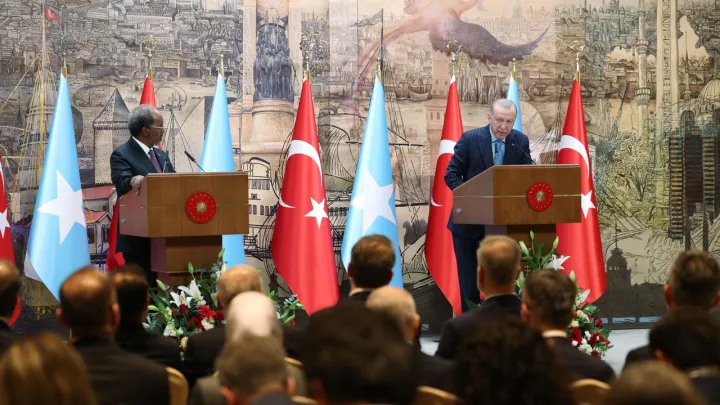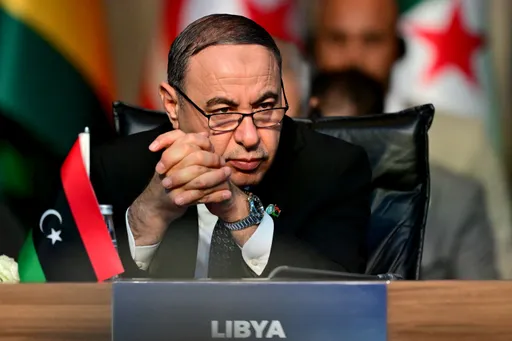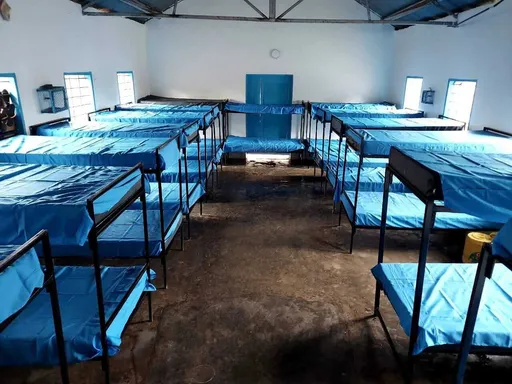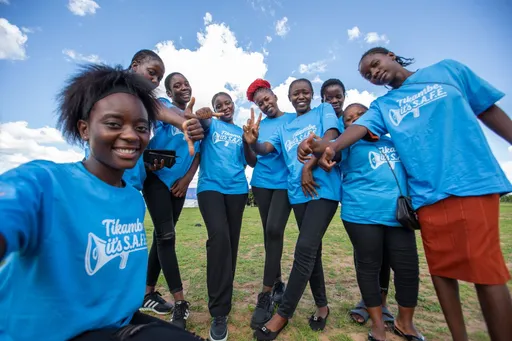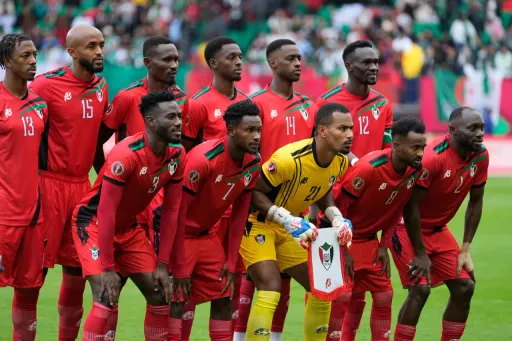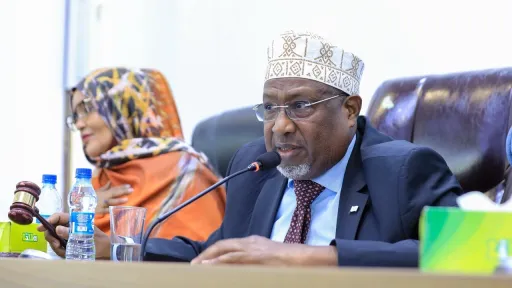By Zulal Sema
As the mediator between Ethiopia and Somalia, Türkiye is hosting a second round of talks between the foreign ministers of the African countries in Ankara.
Turkish Foreign Minister Hakan Fidan met with Ethiopian Foreign Minister Taye Atske Selassie, and later with the Somali Foreign Minister Ahmed Moallim Fiqi, according to the Turkish Foreign Ministry on X.
Tensions between the two East African countries erupted in January after Ethiopia agreed to lease 20 km (12 miles) of coastline from Somaliland--the breakaway region of Somalia--in exchange for Addis Ababa recognising its claims of being an independent state.
In June this year, Fidan hosted Ethiopian and Somali counterparts in Ankara, where he spearheaded talks to resolve their differences “within a mutually acceptable framework”.
Over the past decade, Turkish diplomacy has made significant inroads across various regions of the world, particularly in Africa, under its visionary strategic engagement. The revival of diplomatic ties between Türkiye and many African countries has led to an increase in the number of Turkish embassies to over 40, with almost 40 African states establishing diplomatic missions in Ankara.
Türkiye prioritised opening diplomatic missions in all African countries to further strengthen its relations with the continent. In 2002, Türkiye had only 12 embassies in Africa; by 2022, this number had risen to 44.
“This approach is of enormous benefit to both Türkiye and its global allies," explained Federico Donelli, an International Relations Professor at Italy's University of Trieste.
He applauded Ankara for establishing itself as a neutral partner in Africa.
"In recent years, Ankara has built an enviable reputation across Africa as a reliable and impartial mediator," Donelli said.
The valued intermediary
Türkiye invited the representatives from Addis Ababa and Mogadishu to Ankara on July 1, providing a conducive atmosphere for the dialogue.
At the centre of the misunderstanding, was the signing of a controversial Memorandum of Understanding (MoU) between Ethiopia and the self-declared Republic of Somaliland, granting Ethiopia, which is a landlocked country, access to the Red Sea.
The agreement heightened tensions between Mogadishu and Addis Ababa. Mogadishu protested against the maritime agreement, calling it an “encroachment on its sovereignty” – made without involving Somalia’s government.
Ethiopia defended its agreement, pointing out that other nations had also established deals with Somaliland.
Somalia received solidarity from global, regional and continental bodies such as the Arab League and several other nations.
Ethiopia views the agreement vital to its economic interests, particularly the access to the Port of Berbera. This strategic port is essential for landlocked Ethiopia, offering it a crucial alternative to the ports in Djibouti and Eritrea for trade and logistics.
Experts describe Ankara's diplomacy as a friendly and legitimate approach, which is welcomed by its bilateral partners. “Türkiye has excellent relations with both countries. In addition, the relationship directly involves leadership. Both Abiy Ahmed and Hassan Sheikh have a personal relationship with President Erdogan. All this can create a favourable environment for negotiations.” Professor Donelli says.
In the recent past, Turkish diplomacy has explained that the priorities in the foreign policy philosophy: “Contributing to Peace and Security in the Region and Creating New Cooperation Models,” is peacebuilding and improving security to foster regional stability, cooperation and mutual trust for successful diplomacy and dialogue.
“Our commitment to peace, diplomacy and goodwill drives us to establish dialogue and find common ground," Hakan Fidan told journalists in Ankara.
Prof Dr Mehmet Ozkan, a Foreign Policy expert at the Turkish National Defence University, explains to TRT World that Türkiye's holistic approach has significantly impacted.
Fidan himself has, in the recent past, explained his foreign policy philosophy under "Contributing to Peace and Security in the Region and Creating New Cooperation Models," where he revealed his prioritisation of peacebuilding and improving security to foster regional stability, cooperation and mutual trust as one of the best approaches to successful diplomacy and dialogue.
"Our commitment to peace, diplomacy and goodwill drives us to establish dialogue and find common ground where possible," Fidan told journalists in Ankara in the presence of the foreign ministers of Ethiopia and Somalia after their talks.
Read MoreTürkiye, Somalia discuss cooperation in diplomatic training
Long standing ties bring hope
Somalia and Türkiye developed their close friendship in 2011 after Turkish President Recep Tayyip Erdogan paid a historic visit to Mogadishu, amidst ravaging drought, endless civil war, for spearheading infrastructural projects from Tanzania’s Standard Gauge Railway to Senegal Stadium, and enhancing the management of crucial infrastructures.
Türkiye has strong historical ties with Somalia on the principle of “win-win” relations, including more than 150 development aid projects carried out by the Turkish Cooperation and Coordination Agency (TIKA) since 2011.
Türkiye has its largest embassy in Mogadishu, and it has built its largest overseas military facility there to train the Somali National Army.
The two nations signed a defence pact in February under which Ankara will provide maritime security support to Somalia to help the African country defend its territorial waters.
“Türkiye has had the merit of bringing Ethiopia and Somalia together,” Donelli tells TRT World.
The role of Türkiye in enhancing ties with both countries has fuelled growing hope and positive expectations. Türkiye prioritises their success as two nations prepare to meet for another round of talks led by Türkiye in September.
Erdogan impact
Turkish President Erdogan has several times spoken with his Somali and Ethiopian counterparts to settle the tension between the two East African countries.
On Sunday, Erdogan had separate phone calls with President Hassan Sheikh Mohamud of Somalia and Prime Minister Abiy Ahmed Ali of Ethiopia.
During his conversation with PM Ali, President Erdogan pointed out that Türkiye continues its endeavors to resolve the tension between Somalia and Ethiopia, Turkish Communications Directorate announced.
Erdogan also stated that Ethiopia’s actions to address Somalia’s concerns about unity, sovereignty, and territorial integrity would help facilitate the resolution of the process, the Directorate also added.
During his phone call with his Somali counterpart, Turkish president stated that concrete results are expected to emerge in the second round of talks taking place in Türkiye to achieve reconciliation between the two countries.


